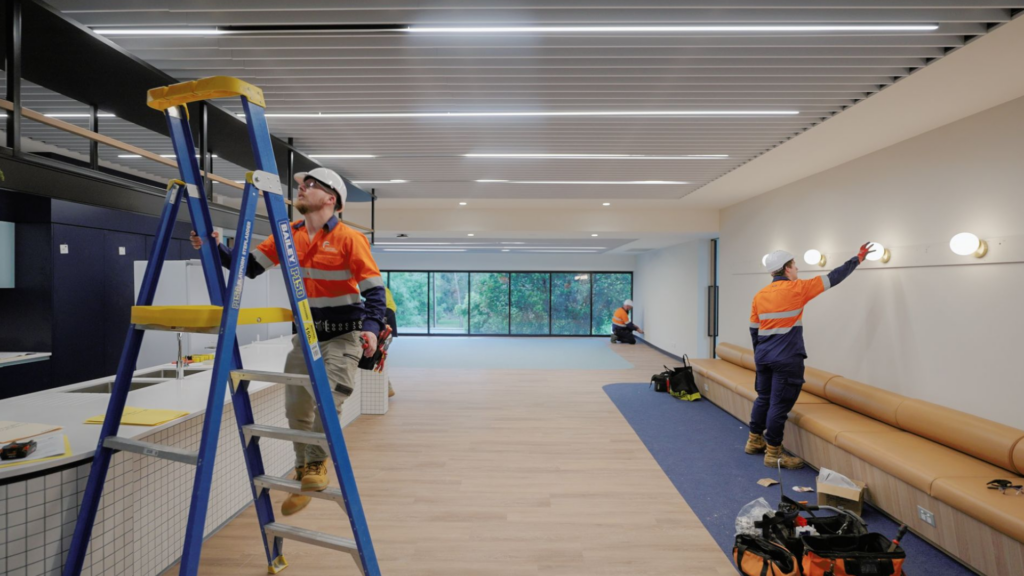
Electricians in Adelaide are the backbone of safe and efficient electrical operations in both homes and businesses across the suburbs. From keeping your lights on to powering crucial machinery, their expertise ensures everything runs smoothly. In this article, we'll explore the top electrical services offered by experienced Adelaide electricians.
Adelaide electricians offer a wide range of services to keep your home safe. Some of the most common residential electrical services provided by electricians in Adelaide include:
Licensed electricians in Adelaide know their stuff and follow strict rules to ensure their work meets high standards. If you need expert electricians who care about quality and know the area well, check out Clean Power. They're experienced and committed to doing a great job.
When things go wrong like flickering lights, power outages, or dangerous wiring. These issues slow down work and make customers unhappy. So having a reliable commercial electrician for your business is super important!
Commercial electricians help you fix, maintain, and install electrical systems for your business. With the support of Adelaide commercial electricians, you can relax knowing your business is in good hands. This peace of mind lets you focus on growing your business and keeping your customers happy.
Electrical emergencies can manifest in various forms, such as:
When you're in a jam, emergency electricians in Adelaide are here to save the day! They're trained to act fast and fix problems safely, so your day can get back on track smoothly.
These local heroes know how to handle urgent situations with ease. When you call, they'll be there in a flash, ready to tackle any electrical crisis. Whether it's a quick fix or a big job, they've got the skills and know-how to get it done right.
More and more people and businesses in Adelaide are switching to renewable energy, like solar power. Local experts, like Clean Power, know all about solar systems. They can help you plan, install, and take care of a solar setup that fits your needs and budget.
But there's more to green energy than solar panels. It's important to think about battery storage too. We recommend getting top-notch batteries that can store extra energy from your solar panels. This way, you can use that power when you need it most, even when it's cloudy or dark outside. Plus, it'll help you rely less on the grid and keep your place running during blackouts.
If your switchboards and meters are old, they can be risky and make your electrical system work less well. But, with the help of skilled electricians in Adelaide, they can look at your setup and suggest upgrades you might need.
Remember, updating your switchboard and meters isn't about fixing problems now. It's also about making sure your electrical system can handle new tech and changes in the future. So, getting a modern and safe setup helps your property stay ready for whatever comes next.
A good structured cabling system is like the backbone of your home or business. It makes sure your computers, phones, and other devices connect fast and stay steady. This makes everything work better and gives you a smooth experience when you're streaming movies, playing games, or video chatting.
In Adelaide, electricians are experts at setting up these systems for you. They know all about data and communication cables, so they can design and install one that fits your needs. Plus, they make sure it's done right from the beginning, so you don't have to worry about problems later on.
In Adelaide, electricians do more than fix wires and switches. They're also good at adding cool tech to your home. They can set up things like lights that turn on by themselves, a thermostat that keeps your house temperature, and even security systems you can control with your voice.
With their help, you can have a home where everything works together, making it comfy and safe. Think about coming home to a house with the right temperature, lights, and your favourite music playing—all without you doing anything!
That's the magic of smart home stuff, and you can have it too with the help of electricians in Adelaide. Give us a call today to make your home modern, easy, and eco-friendly!
When choosing an electrician in Adelaide, think about their license and experience. A licensed electrician have had tough training and meets all the safety rules, so they're safe and good at their job. Experienced electricians know how to do electrical work well, like fixing things and putting in new stuff.
Check out what customers say about them to make sure they do a good job and act professionally. Local companies that have been around for a while know all the rules and laws here, so they'll keep everything legal and safe. They can come quickly if there's an emergency and know exactly what's needed for electrical work in Adelaide. You can trust them to do a good job and keep your power running smoothly.
In Adelaide, having a trustworthy electrician is super important for both homes and businesses. They keep things safe, make everything work better, and fix any problems that pop up.
At Clean Power Electrical Group, we've got a team of trained experts ready to help with all your electrical needs. Whether you need safety checks, efficiency improvements, or just want things to run smoothly, we're here for you. Get in touch with us today to talk about your project or get a free quote!




